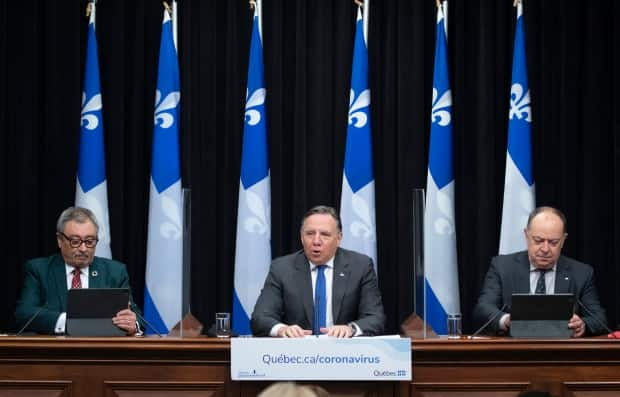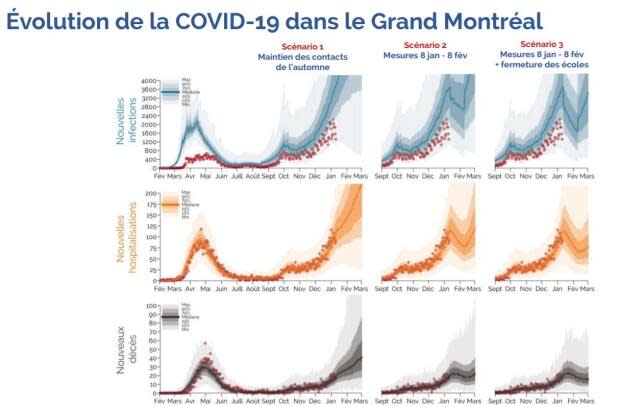Quebec wary about lifting curfew as projections hint at possible new spike in cases
The Quebec government dampened hopes Thursday that it will lift the province-wide curfew next month, even though transmission rates have declined in recent days.
At a news conference in Quebec City, Premier François Legault said there were still too many COVID-19 patients in hospital, and suggested the curfew would have to be in place for several more weeks.
"As long as [hospitalizations] are that high, we can't think about lifting the restrictions, certainly not in Montreal or Laval, where there are a lot more cases," Legault said.
The daily number of new cases in Quebec has dropped steadily over the last week. Quebec's seven-day daily average is now around 1,600, down from 2,600 earlier this month.
A government-funded research group released a report Thursday that found the chances of hospitals overflowing in Montreal were diminishing.

Legault has attributed the improvement to the overnight curfew that took effect Jan. 9 and is scheduled to expire Feb. 8, though experts say it generally takes two weeks to determine the effectiveness of a new public health measure.
"We're encouraged by what we're seeing. The situation in Quebec is a lot better than it has been in recent weeks. But it's fragile," said Health Minister Christian Dubé.
He pointed to the latest set of projections by the public health research institute, the INSPQ, which warn of a spike in cases and hospitalizations, particularly in the Montreal area, if the curfew is lifted on Feb. 8.
New projections hint at caution
The models predict a sharp decrease in new cases and hospitalizations into mid-February, followed by a return to the current rate of hospitalization and even higher rates of transmission by March.
A separate model shows it would have taken closing schools until Feb. 8, along with the curfew, to keep hospitalizations down.
"What the model projects is that if the schools are closed, it will lower the number of cases, especially in young people," said Dr. Jocelyne Sauvé, vice-president of scientific affairs at the INSPQ.

But, she said, those cases won't necessarily lead to hospitalizations if infected children can be kept from interacting with older adults.
The return to in-class teaching was delayed following the Christmas break as part of an earlier round of public health measures aimed at keeping hospitals from overflowing.
But both elementary and high-school students are now back in class, which Dubé acknowledged is likely to push case levels higher.
"We said reopening schools was our priority," the health minister told reporters. "We know there is going to be transmission there. And we said that was a risk we could take."

